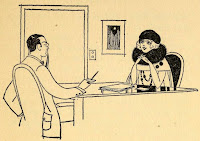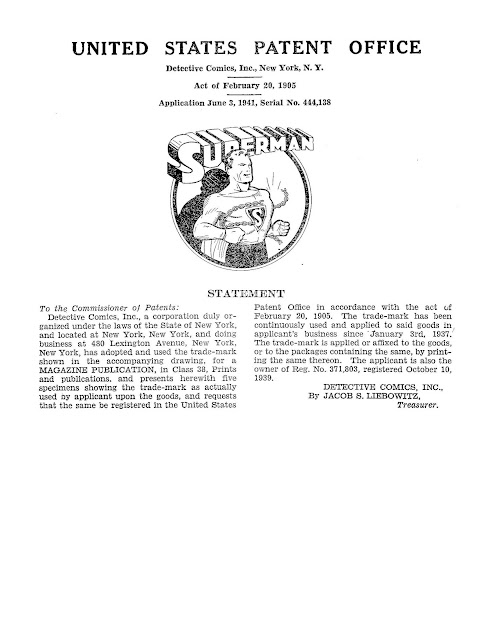 |
| Asking an Attorney to Review a Book Contract |
Book Contract Checklist of Deal Terms
Book contracts must be carefully negotiated to tailor the terms to fit each author's unique situation. They must address key issues such as the grant of rights, title approval, audit rights, termination clauses, royalties, and more. Further, how you, or your publishing attorney, define key terms and clauses are critical to minimizing the likelihood of disputes.
In book publishing, unlike the film industry, the grant of rights is (or should be) narrow. In
exchange for an advance against royalties, publishers receive
the basic right to print and publish a manuscript in book form for the entire term of copyright.
Today, copyright lasts for seventy years beyond an author's passing. You might wonder, what could possibly go wrong? The answer: quite a lot. Just ask a publishing attorney. Without a properly negotiated book contract, potential pitfalls include:
- no ability to reclaim your rights if the publisher fails to account
- no recourse to reclaim your rights if the publisher fails to publish or goes out of business
- no means to reclaim your rights for low or no sales
- no way to reclaim unexploited audiobook or foreign translation rights
- no say in approving settlement of legal claims
- overly broad non-compete clauses
- restrictive option clauses that may be confused for a multi-book deal
- publisher rights grab of film, TV, theatre, and merch rights
Publishers are generally most open to accommodating requests for contract adjustments during the initial stages of the relationship, often referred to as the "romance" phase. Later is too late. Unless a book publishing contract allows an author to terminate for cause if the relationship goes awry, or rights are granted on a "use it or lose it" basis, the author is caught between
bad and worse options - asking a court to rescind the contract (rescission is seldom granted) or waiting 35 years to exercise their right of termination under the Copyright Act.
A Book Contract Should Not be Entered into Hastily
The primary purpose of a book contract is to detail the rights, delivery and acceptance conditions, payment terms, and remedies for breach of contract. For example, rather than relying on a lawsuit to get back rights, if a publisher fails to publish
within a contractually agreed time limit, there should be a mechanism that permits an author to regain their rights. Similarly, if a publisher fails to exploit specific subsidiary rights (e.g., audiobook or foreign translation) within a reasonable time, it should trigger a reversion of those rights. In addition to reclaiming or recapturing rights, an author should reserve, or hold for their own use, film, television, live stage, podcast, and merchandise licensing rights. If a book publisher claims these rights, they deviate from industry norms.
What to Expect When Expecting a Book
Contract
Preceding
the actual book contract is the term sheet. The term sheet contains the main deal terms. To
decode a term sheet some authors turn to
literary agents, who will receive a 15% commission on everything from books to audiobooks to film deals. Others retain flat or hourly fee book contract
attorneys to help them negotiate royalty rates, the grant of rights, and, later, decipher the legal provisions found in the actual publishing contract.
Initially, a
publishing attorney will review the deal terms and make recommendations to their client. The
initial task is to determine if the deal terms measure up to industry standards. We do this by
comparing the terms to similar terms offered by similarly situated publishers for comparable books. After both parties agree to the deal terms, the publisher will prepare a contract incorporating those terms, plus the publisher's stock provisions. Like agents, attorneys are buffers that save you from dealing with the minutia of contract negotiation. They will help the client think through the offer and its possible ramifications and advise them on what is negotiable and what is not. An author's attorney can argue for the exclusion of certain items or rights from the proposed contract and the inclusion of others, such as naming the author as an additional insured on the publisher's media perils policy.
It should come as no surprise that publishing
contracts are chock full of double dips and legal loopholes, and when it comes
to royalties, a hall of mirrors where what it says and what it means are often
two different things. The big five New York publishers offer royalties based on the suggested retail price. Royalties for trade paperback books range from 7 - 7.5% of the list price on average. Typically, established publishers offer 10% of the list price for the first 5,000 hardcover copies sold, 12.5% on the next 5,000 sold, and 15% thereafter. Many smaller publishers base their royalty on the "net amount received," which may be 40% to 50% less than the retail price. The standard eBook royalty rate offered by established publishers, and many independents, is 25% of the net.
Is Your Book Contract Signable?
When
presented with the contract, you will want to modify specific terms.
In the case of a subject matter expert, business owner, or series
author, you want title approval. Yet most stock contracts state the publisher decides the book's
title. Contract clauses are malleable, not words set in stone. A good publishing attorney - or agent- knows the contract managers at the major publishing houses. Logical arguments supporting rational
positions and knowledge of industry practice are the underpinnings of most book
contract negotiations.
Whether one of the big five New York publishing houses or one outside of the insular world of New York publishing, a well-drafted publishing contract can anticipate potential issues, reduce disputes, improve financial return, and save thousands of dollars in legal fees later on.
Benefits of Reviewing a Signed Agreement with a Publishing Lawyer
For
those who have already signed a publishing agreement, a publishing attorney or literary lawyer
can help you understand the deal's limitations and determine
if those limitations are enforceable. For example, a publishing attorney
can advise whether a next book option is enforceable or simply an
unenforceable agreement to agree. For example, a common concern is whether a non-compete clause can prevent an author from writing a new book on a related topic. Similarly, a publishing attorney can advise on termination for cause options or termination as a matter of right
under the Copyright Act.
Tip. If chomping at the bit to sign a
contract but cannot afford to hire a lawyer, visit Victoria Strauss' Writer Beware blog - a beacon of light in the "shadow-world of literary scams, schemes,
and pitfalls." Writer Beware doesn't offer legal advice, but it does a stellar
job exposing and raising awareness of questionable business practices in the world of books and authors.
Book Publishing Contract Checklist
Below are matters to
consider when you draft or negotiate your next publishing agreement. Each key
point deserves greater attention than given here (and will be the subject of
future blog posts). While not all clauses are equally important (or negotiable),
a well-drafted contract will cover all or most of the points outlined below.
I. General Provisions
1. Name/address of parties
2. Description of work (synopsis)
-Tentative title, # of
words, illos, intended audience, fiction, non-fiction, etc.
II. Grant of Rights and Territory
1. Is it an assignment of "all rights"
or a license agreement?
2. Duration (term of years or life of the copyright?)
3. Geographic scope
a)
The world?
b)
Limited (e.g., the U.S.,
its possessions, and Canada)
4. Exclusive rights granted
a)
Primary rights
-Hardcover
-Trade paperback
-Mass market
b)
Secondary (subsidiary rights)
-First serial (pre-pub excerpts)
-Second serial (post-pub excepts)
-Reprint rights
-Dramatic rights
-Film/TV rights
-Audiobooks
-Foreign translation
-British Commonwealth rights
II. Manuscript Delivery
1. Delivery requirements
a) When due? Is the date
realistic? Time is of the essence?
b) What format?
c) What to deliver?
-Rights cleared photos, illos, charts? Illos? Charts?
-Permission & Release
2. Manuscript Acceptance
a) Satisfactory in "form and content" or at "sole discretion"
of the publisher?
b) Termination for
unsatisfactory manuscript
c) Termination for
changed market conditions
d) How is the notice of
acceptance or dissatisfaction given
e) Good faith duty to edit
f) Return of the author's
advance
-First proceeds clause
-False first proceeds clause
III. Copyright Ownership
1. In whose name will the work be registered?
2. Who will register the work with the Copyright Office?
3. Is there a signed collaboration or ghostwriter agreement?
4. The scope of permissions should parallel rights granted publisher
5. Reserved rights (i.e., rights retained by the author)
IV. Author’s Representations & Warranties
1. Author sole creator
2. Not previously published; not in the public domain
3. Does not infringe any copyrights
4. Does not invade the right of privacy or publicity
5. Not libelous or obscene
6. No errors or omissions in any recipe, formula, or instructions
7. Limited only to material delivered by the Author
V. Indemnity & Insurance Provisions
1. Author indemnifies the publisher
2. Does indemnity apply to claims and breaches?
3. Can the publisher withhold legal expenses? If so, for how long?
4. Has the author been added as an additional insured to media perils policy?
5. Does the author have approval over the settlement of claims?
VI. Publication
1. Duty to Publish within [insert number] months
a) Force majeure (acts
of god)
- Any cap on delays?
2. Advertising and promotion
3. Right to use author's approved name and
likeness
4. Advance Readers Copies - MUST be sent 3-4 months before pub date
5. Style or manner of publication
a) Book Title - Right of consultation or
approval?
b) Book jacket - Right of consultation? Approval?
c) Changes in manuscript
6. Initial publication by a specific imprint in a particular format?
V. Money Issues
1. Advance against future royalties
2. When payable? (in halves, thirds, etc.)
3. Royalties and subsidiary rights:
a) Primary rights
-Hardcover royalties
-Trade paperback royalties
-Mass market royalties
-Ebook royalties
-Royalty escalation(s)
-Bestseller bonus
-Royalty reductions
1) deep discount and special sales
2) mail order sales
3) premium sales
4) small printing
5) slow moving inventory
b) Secondary
(subsidiary) rights royalty splits
-Book club (sales from publisher’s inventory v.
licensing rights)
-Serialization (first serial, second serial)
-Anthologies, selection rights
-Large print editions
-Hardcover
-Trade paperback
-Mass market
-Foreign translation
-British Commonwealth
-Future technology rights
. -Database rights
-Audio rights
-Motion picture/TV
-Merchandising
4. Reasonable reserve for returns
a) What percentage will be withheld?
b) When liquidated?
5. What is royalty based on? (retail price?
wholesale price? net price?)
a) At average discount
of 50%, 20% of net is same as 10% of list
b) At average discount
of 40%, 16-2/3% of net is same as 10% of list
c) At average discount
of 20%, 12-1/2% of net is the same as 10% of list
6. Recoupment of advances
VI. Accounting Statements
1. Annual, semiannual, or quarterly statements
2. Payment dates
3. Can the publisher recoup an outstanding advance from the next book?
4. Does the contract afford author audit rights?
5. Limit on time to object to statements
6. Limit on time to bring legal action
7. Can you hire a forensic accountant to review books on a contingency basis?
8. Pass through clause for subsidiary rights
income
9. If the publisher fails to account, can you terminate the contract?
VII. Revised Editions
1. Frequency
2. By whom?
3. Can they reduce your royalty if you don't participate in a revision?
4. Sale
of a revised edition treated as the sale of a new book?
5. Reviser credit (May the original author remove their name?)
VIII. Option
1. Definition of next work
2. When does the option period start?
3. Definiteness of terms (i.e., is the option
legally enforceable?)
4. What type of option? (e.g., first look,
matching, topping?)
IX. Competing Works & Morality Clauses
1. How is competing work defined?
2. How long does the non-compete run?
3. Are there adequate exclusions from what constitutes a competing work?
X. Out-of-Print
1. How defined?
2. Notice requirements
3. Author's right to purchase plates, film,
inventory
XI. Termination
1. What triggers the reversion of rights?
a) Failure to publish
within 12 (or 18) months of manuscript acceptance
b) Failure to account to the author after due notice
c) Failure to keep the book
in print (see Section X)
2. Survival of Author's representations and
warranties
3. Licenses granted before termination survive?
TIP. Pay attention to what triggers the duty to return the advance?
XII. Miscellaneous
1. Choice of governing law
2. Mediation / Arbitration clauses
3. Bankruptcy
4. Modification
5. Literary agent clause
###
Illustration: from Lawton Mackall's Bizarre
Illustrator: Lauren Stout
Date: 1922
Related Blog Posts
DISCLAIMER / TERMS OF USE
Not Legal Advice. The information contained in this blog is intended as general advice. Because the law is not static, and one situation may differ from the next, we cannot assume responsibility for any actions taken based on information published here. Be aware that the law may vary from state to state. Therefore, this blog cannot replace the advice of an experienced attorney. No attorney-client relationship is created by your access to or use of this website. Contacting us by email does not create an attorney-client relationship. If you wish to establish a professional relationship, it must be done through a mutual agreement in writing. Please do not send us any confidential information until an attorney-client relationship has been established.
Attorney Advertising. While intended as general advice, this blog and its contents may be considered attorney advertising under the rules of certain jurisdictions. Hiring an attorney is important and should not be based solely on advertising. Past results are no guarantee of future results.
Limitation of Liability. We disclaim any liability, loss, damage, injury, or cost (including, without limitation, attorneys' fees, lost profits, or data) caused by the contents of this blog or website.
Links. This website contains links to third-party websites and other resources. These links are provided solely for your convenience and educational purposes. They should not be construed as endorsements by the Law Offices of Lloyd J. Jassin.
Jurisdiction. Using this website, you have irrevocably agreed to the U.S. federal and state courts' sole and exclusive jurisdiction and venue in New York City, USA. Any action, suit, or proceeding involving the use of this website, the information contained in this website, to the extent permitted by federal law, will be governed by the laws of the State of New York (excluding New York's choice of law rules) in the absence of applicable federal law.
Trademarks. COPYLAW is a registered trademark of Lloyd J. Jassin.




